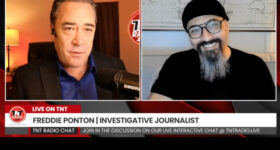The duchy of Cornwall gave the prince an income of £18m last year, but says it is not subject to paying corporation tax
Robert Booth
Guardian
 HM Revenue & Customs has been asked to investigate alleged tax avoidance by Prince Charles’s £700m hereditary estate.
HM Revenue & Customs has been asked to investigate alleged tax avoidance by Prince Charles’s £700m hereditary estate.
The duchy of Cornwall last year provided Charles with an income of £18m and HMRC‘s anti-avoidance group is now being asked to examine its non-payment of corporation tax following a potentially significant court ruling on its legal status.
The issue has been raised by an accountant investigating the tax affairs of the duchy – an agricultural, commercial and residential landowner.
He has analysed the impact of a judicial ruling handed down last year. Anti-monarchy campaigners claim it shows the duchy is running “a well-entrenched tax avoidance scheme”.
The duchy insists it “is not subject to corporation tax as it is not a separate legal entity for tax purposes”. But John Angel, principal judge at the information rights tribunal, ruled last December it was a separate legal body to the prince.
Accountants now believe the ruling could leave the duchy exposed to the 24% levy on profits other organisations must pay. Any change to its tax status could result in a cut to the prince’s income.
Republic, the campaign for an elected head of state, has asked HMRC’s anti-avoidance team to investigate whether the ruling means the duchy is now “using a highly questionable interpretation of its legal status as a means of avoiding corporation tax obligations”.
A spokesman for HMRC said it would evaluate the information and “take appropriate action”. There is no suggestion any law has been breached. Clarence House strongly denies claims of avoidance.
The move comes as the House of Commons public accounts committee, which earlier this month criticised Starbucks, Google and Amazon for their “immoral” decisions to avoid paying more corporation tax, prepares to hold a hearing next year into the royal finances. As well as duchy income, last year Charles received £2.2m in grants from the taxpayer to pay for his travel by private jet, helicopter and train and the upkeep of Clarence House.
He voluntarily paid tax of £5m on his £18m income from the duchy last year, which Clarence House said was at the full 50% rate after deductions from expenses.
The duchy owns 53,000 hectares of land in 23 counties, including Prince Charles’s Gloucestershire home of Highgrove. It has provided incomes to successive Princes of Wales since the 14th century. The assertion that the estate is inseparable from Charles has allowed him to use its gross profits to fund private and official spending including 26 valets, gardeners and farm staff. In the past five years he has received more than £86m from the arrangement.
But when Angel was tasked with deciding if the duchy should publish information about its environmental impact, he ruled it must be considered a separate legal body to the prince because of “the differentiation of the duchy and duke in commercial and tax matters as well as under legislation and the contractual behaviour of the duchy”.
The judge said: “We find that the duchy is now a body or other legal person.”
Independent accountants and a firm of tax lawyers consulted by the Guardian over the claims confirmed the ruling had the potential to undermine the prince’s tax arrangements, but said it was not clear-cut.
“There appears to be no legal basis on which the duchy is not taxed and there is no legal basis for the arrangement under which Prince Charles pays tax on an ad hoc basis of his own making,” said Richard Murphy, who runs Tax Research LLP, and has examined the duchy’s arrangements. “We have a token PR gesture from Prince Charles, not unlike Starbucks’ arrangement [to pay voluntary corporation tax].”















